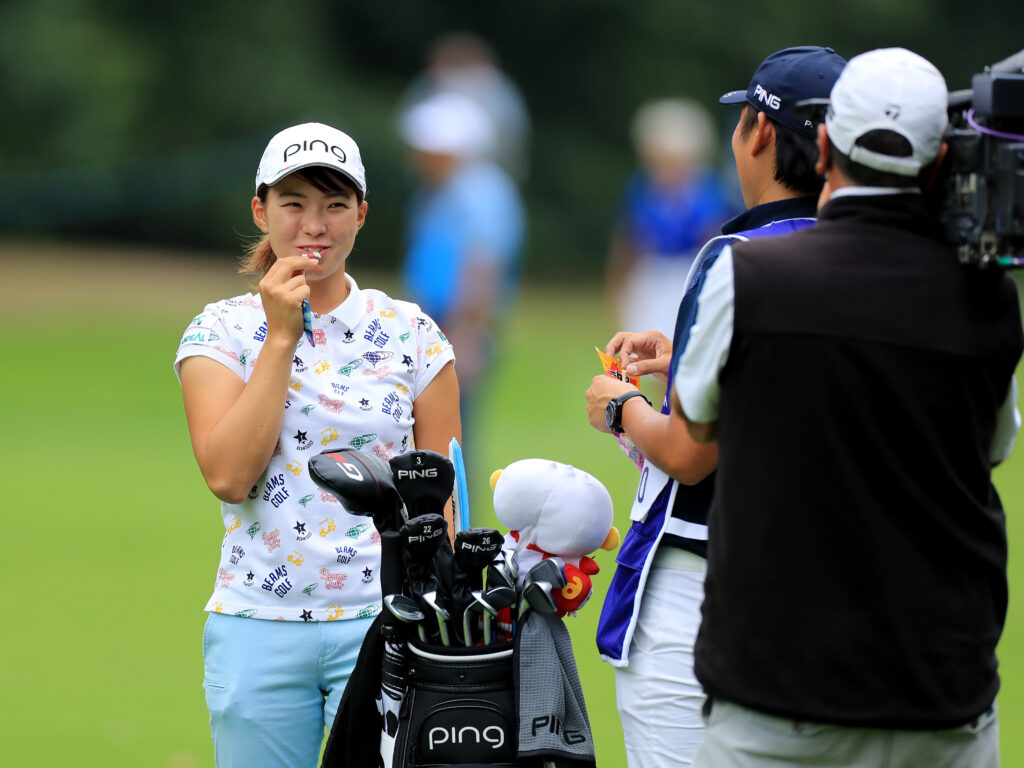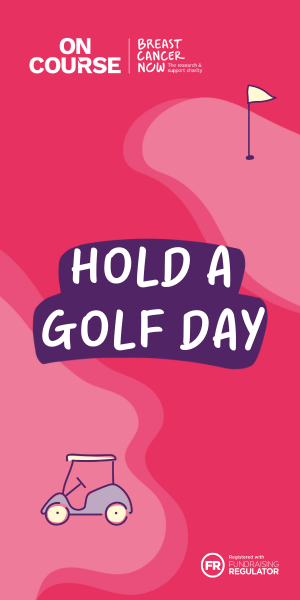Eating properly is essential for sustaining energy throughout a round of golf, as performance coach Dr Kitrina Douglas explains.
Eating is important, we all know that. And it's crucial to think about what you eat before, during and after a round of golf.
And possibly the two most important nutritional considerations are energy and hydration.
Both these not only help sustain a smooth rhythmical swing over several hours, but they also play a critical role in maintaining concentration, co-ordination and decision making.
Typically, I find golfers are always more likely to first suggest poor play was due to swing problems or their technique as opposed to considering the underlying causes which might have provoked a ‘too quick’ or ‘poorly timed’ shot. Frequently, after a closer examination, many golfers begin to recognise that, at times, an ill-timed shot could have been the result of depleted energy supplies or poor hydration.
The consequences of dehydration are often more obvious when the weather becomes hotter than we are accustomed to, or if playing on a more physically demanding course. So, what can we do to ensure we are reasonably prepared to perform optimally whatever our standard and whatever the circumstances?
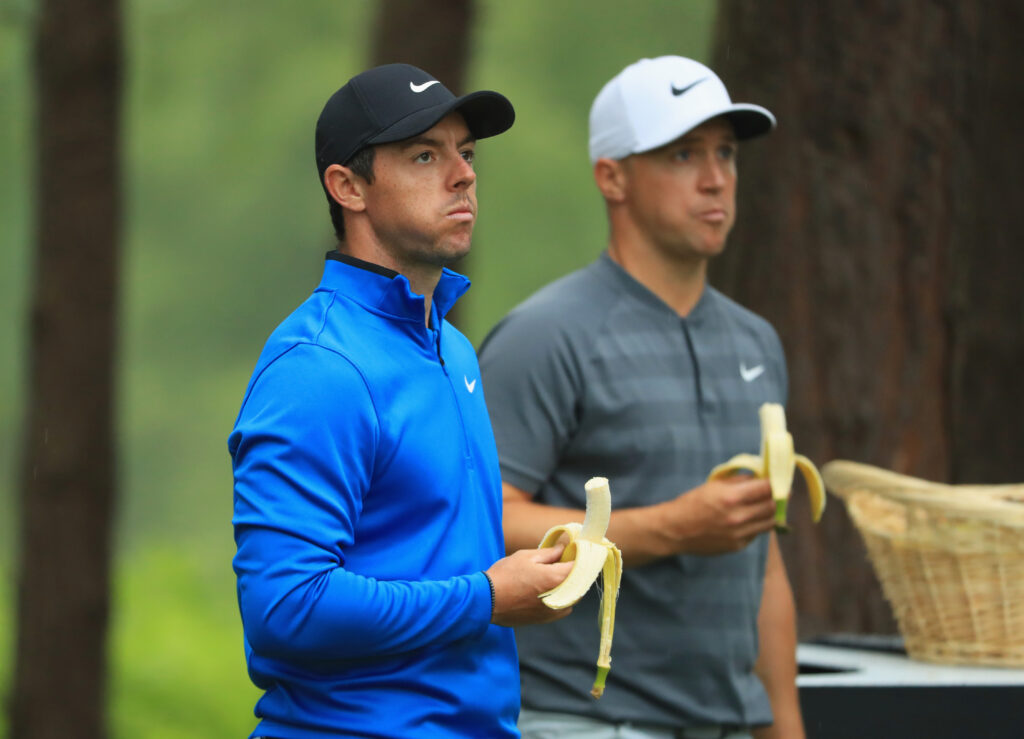
Maintaining energy levels
Firstly, we need to recognise the importance of a balanced diet at all times, not just when we are playing golf.
A balanced diet means regular intakes of proteins. lipids (fats), carbohydrates, minerals and vitamins and we need all of these at frequent intervals because even when we are sitting still or sleeping the body is continually at work.
The balance between our needs for the major food groups has been calculated at 57% carbohydrates, 30% lipids and 13% protein, therefore when you consider your breakfast, lunch or dinner menus they need to reflect this mix.
The high percentage of carbohydrates and low percentage of proteins often come as a surprise to those schooled to believe we need proteins for healthy bones and teeth, which of course we do, just not in as high a percentage comparted with carbohydrates.
Although all proteins, carbohydrates and lipids can all, at times, be converted into the same fuel for physical activity, it is carbohydrates which are most easily broken down into glucose and therefore provide most of our fuel for energy needs.
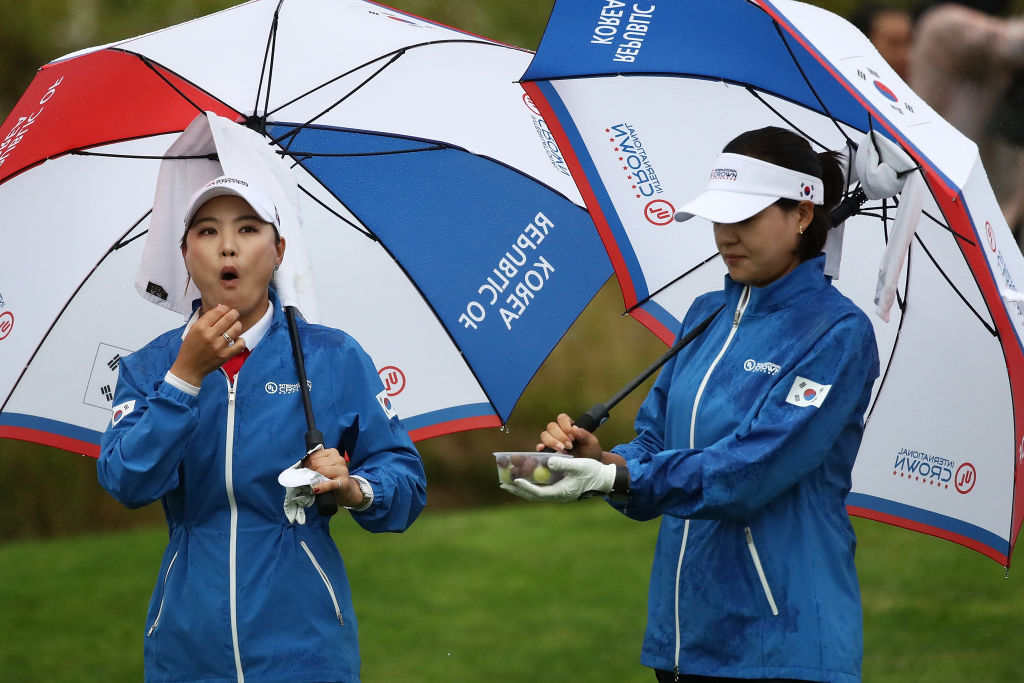
Do calories matter?
When discussing energy, the term most people are familiar with is 'calorie'.
Your individual calorie needs are influenced by many factors including age, height, muscle mass and gender, but in terms of golf performance, the energy you need to perform is critically influenced by your activity levels and fitness, therefore what you take in needs to be balanced with your output needs.
Once you have met your energy needs the surplus, whether it is from cabbage, cucumber or cake, is a surplus and even if they are from healthy low-calorie foods, they will be converted and stored as fat.
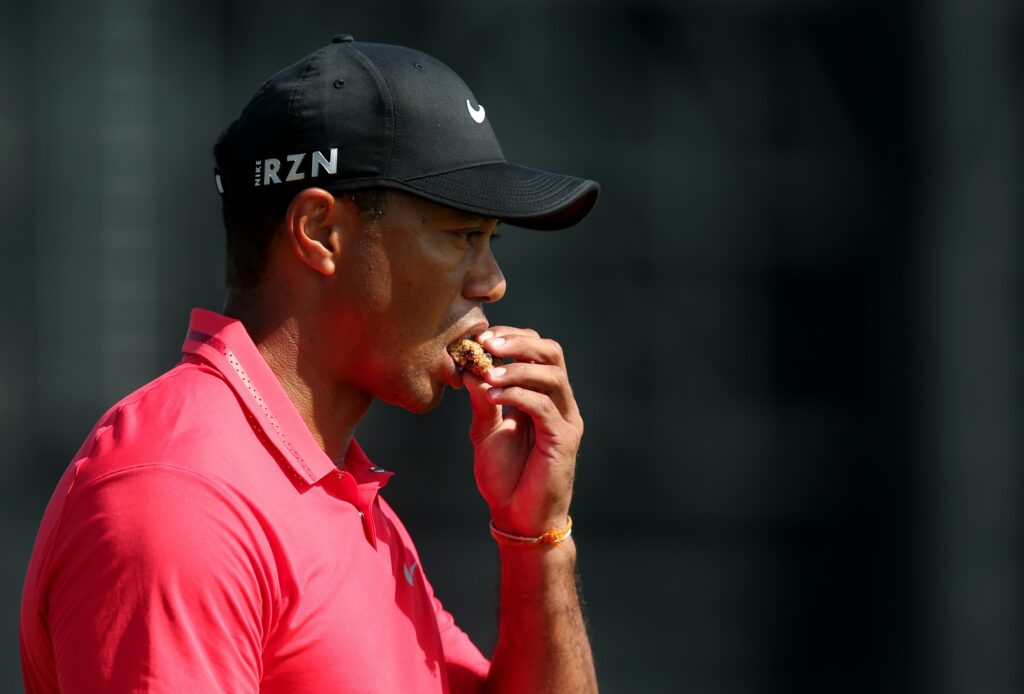
A good breakfast
As the body is continually using up its energy stores it makes sense to eat breakfast. While an occasional cooked breakfast can be enjoyable, an egg, bacon and sausage meal (and heaven forbid you have fried bread or black pudding) is predominately composed of proteins and lipids.
So, if you are to engage in prolonged physical activity it is more important to consume complex carbohydrates and these can be gained from, for example, toast or cereal. Many people seem to assume that to eat healthily means to eat boringly but it doesn’t have to be the case.
For example, if you can go without syrup, pancakes served with strawberries, bananas and blueberries make a wonderful summer breakfast, provide a colourful plate of food and provide balance in terms of dietary needs. Porridge served with a sliced banana is a delicious winter alternative.
Snacking mid round
Although chocolate might psychologically make you feel better during the round it isn’t really the best option to supplement your energy while playing golf.
When you eat complex carbohydrates, glucose is supplied to your body at a stable and sustainable rate. In comparison, chocolate contains refined sugar meaning glucose is metabolised more quickly into the blood stream and this results in a less stable energy supply and peaks and troughs in blood sugar levels.
For me it makes sense to take fruit on the course such as apples, grapes and bananas. Cereal or health bars make good snacks but just take time to read through the ingredients. Often cereal bars are promoted as being healthy because they are low in fats, or cholesterol but in contrast are high in refined sugar.
Whatever snacks you take try to eat them at regular intervals, for example every three holes, rather than wait until you feel tired before taking action.

Post-round meals
The energy you have used up during play, especially if you are playing in a tournament and practicing, should be replenished after play.
Unfortunately, healthy eating is difficult in many clubs which are still set up to supply chocolate, cakes, omelette and chips etc.
So, if the club menu leaves much to the imagination, make a sandwich or wrap or why not create an interesting bean and pasta salad and take it with you?
Doing so also gives you the option of eating where and when you need food as opposed to hanging on towards the end of a slow round, becoming prematurely fatigued and then consuming the first thing you see!
About Dr. Kitrina Douglas
Kitrina is a qualified NCF Coach and PGA professional. She also has an Honours degree in exercise and sports science and a PhD from Bristol University.
Currently a professor at Leeds Becket University, her golf career saw her win at every level. Her achievements include representing GB&I in the Curtis Cup, 10 professional wins and being part of the of the first winning European Solheim Cup Team in to defeat the USA in 1992.


